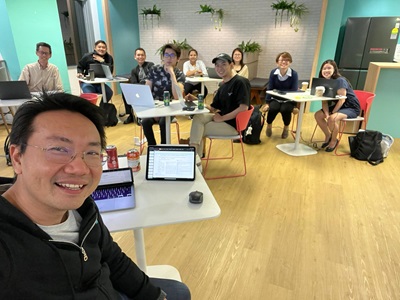Register for our programme briefing session at the SUSS e-Open House on 31 Aug 2024 (Sat) to have your queries answered by our faculty. You can also watch our programme briefing video at your own time and attend enrichment talks by industry experts.
[ Register now! ] |
In today’s data-centric organizations, executives need to possess knowledge and skills in data technologies to make informed decisions. The Master in Analytics and Visualisation (MAVI) programme meets this critical need by offering comprehensive training for working professionals and aspiring data analysts, business analysts, and managers in various data-driven roles. The programme covers essential areas such as data visualisation, data management, automation, and decision analytics to equip students with the competencies needed to succeed in today's data-rich business landscape.
In the MAVI programme, you will learn to use a range of cutting-edge computational tools for analytics, including R, Python, MySQL, and SPSS. You will also gain expertise in open-source automation tools such as UiPath and enterprise-grade platforms for workflow automation. You will develop the flexibility to use diverse tools to complete tasks within an analytics workflow, from visualisation and wrangling to machine learning. Additionally, you will learn to leverage robotic process automation (RPA) and enterprise workflow automation tools to streamline analytical tasks, such as data cleaning, data integration, and reporting.
To accommodate busy professionals, the MAVI programme offers a hybrid learning mode, allowing you to attend face-to-face courses on-site or remotely via synchronous online classes. The programme also provides a range of learning activities, including taught courses, an applied project, and an elective internship. Through the applied project, you will receive guidance from industry practitioners and academics in project mentoring sessions, attend seminars in machine learning and computing, and participate in activities to prepare you for a data-related role. Through the internship, you will have the opportunity to gain relevant experience and apply your newly acquired knowledge in an industrial setting.
The MAVI programme is dedicated to developing the skills necessary to be competent practitioners in data analytics, visualisation, and automation. You will gain insights into how to translate and address business problems using data analytical methods, preparing you for a successful career in data-driven organisations.
Accelerated and Regular Tracks
The MAVI programme offers both accelerated and regular tracks. Students on the accelerated track will complete the programme in 1 to 1.5 years. Students on the regular track will complete the programme in 1.5 to 4 years. Please see Admissions Requirements for details.
Unique Features of the Programme
- The programme is designed with a strong industry focus, providing you with practical skills and knowledge that can be immediately applied in a data-related work environment.
- This programme is delivered in a flexible hybrid mode, allowing you to attend face-to-face courses on-site or remotely via synchronous online classes.
- You will have the unique opportunity to enrich your practical experience through an internship, which is offered as an elective.
- You will learn how to use a range of leading-edge tools in data analytics such as R, Python, MySQL, and SPSS, as well as open-source automation tools like UiPath and enterprise-grade platforms for workflow automation.
- You will become competent in completing various tasks in an analytics workflow, from data visualisation, data wrangling and machine learning, and gain valuable skills in translating business problems into actionable tasks that can be addressed with data analytics methods.
- As part of the programme, you will have the opportunity to complete an applied project in a structured learning environment, closely guided by an industry or academic mentor, to help prepare you for a data-related role in the industry.
- The courses are designed to be self-contained, and no prior knowledge of analytics or programming is assumed.

Discovering the latest best practices in data integration at
Workato Singapore in ANL555 Data Integration for Enterprise Automation